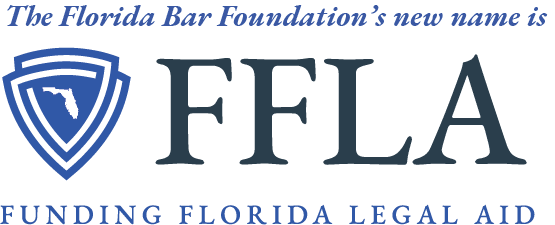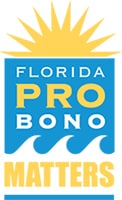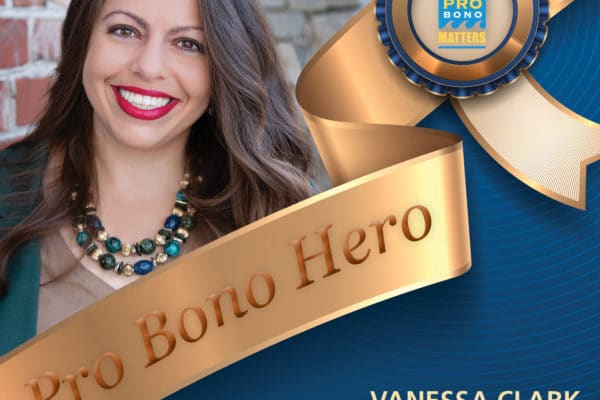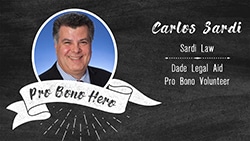By Stacey Singer DeLoye
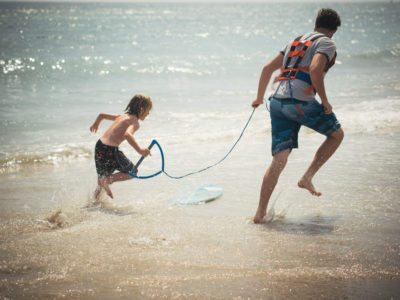
University of Central Florida engineering student Matthew White is getting help with a patent application for his wakeboarding harness from pro bono attorney Daniel Pierron through the Florida Patent Pro Bono Program. Photo credit: Robbie Rockwell
Florida beaches aren’t globally recognized for surfing, due to a continental shelf that dampens large waves. But plenty of people love wakeboarding behind a tow boat or skimboarding along the shore, among them, Matthew White, a 23-year-old electrical engineering student at the University of Central Florida.
White designed a clever harness system that makes wakeboarding and skimboarding easier, but he needed help protecting his intellectual property. As a college student, he lacked the funds to hire a patent attorney. He found one in Daniel Pierron, an associate patent attorney at Wireman Malek in Melbourne, who donated his services through the Florida Patent Pro-Bono Program, administered by the Florida Institute for the Commercialization of Research.
The American Bar Association’s Celebrate Pro Bono Week unfolds Oct. 23-29, highlighting volunteer efforts of lawyers who provide greater access to the legal system through donated services. While many of these lawyers help Floridians with family law needs, foreclosures, contract disputes, employment and immigration issues, volunteering opportunities also exist for business law and patent attorneys willing to help cash-poor but idea-rich inventors like White.
White said the idea for his invention literally came at the beach. When there’s no tow boat available, or the waves are too puny for skimboarding, friends often resort to running and pulling their friends behind them, but it can be awkward. White’s Towboarding Harness features a rope and a waterski handle that make it easy for another person to serve the role of towboat, running to give their friend a crazy-fun ride skimming along the wet sand, waves or no waves. It’s a great tool for teaching children to skimboard and wakeboard safely, White said. “Another use is in the fitness industry, and using it for off-road skateboarding,” he added.
After designing his harness, making it and testing it out on the beach multiple times, White formed a company, Mainland Tow, and worked to put up a web site. He knew he probably should protect his intellectual property, too, and so he did his homework and filed a provisional patent on his own, understanding that he’d have to do much more to actually win the patent.
An attorney at his college told him about the Florida Institute for the Commercialization of Research, which runs the Florida Patent Pro-Bono Program, launched in May 2015 under the guidance of the U.S. Patent and Trademark Office. A national program, it grew out of the Leahy-Smith America Invents Act, passed in 2011, which calls for the support of pro bono programs in every state to help lower-income inventors develop ideas into products. White said he applied on line, saw that he qualified, and was soon matched with Pierron.
“It was very easy. The lawyer called me, said I’m interested in helping out, and we’ve been partners ever since,” White said.
Pierron said he was impressed with White’s provisional application, but it needed more work to move past the provisional stage. “It is really ill-advised for a non-patent professional to try to do the non-provisional part by themselves — there is a lot of learning in what language to use, what scope to use, and it is very difficult for a lay person to get themselves up to speed on that,” he said.
With drawings and descriptions now complete and submitted, the non-provisional patent application is in and awaiting a decision. Meanwhile, White expects his partnership with Pierron to continue into the future.
“My next invention is using created circuit boards, and he does a lot of semiconductor device patents, so I think he definitely could be a partner of mine in the future,” White said.
